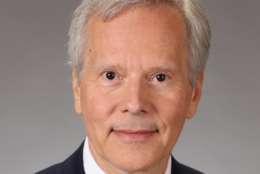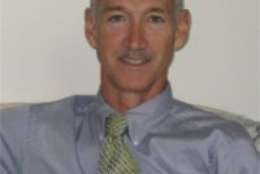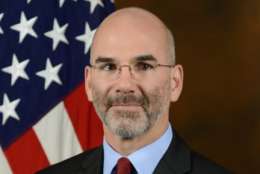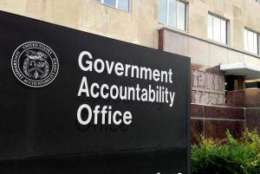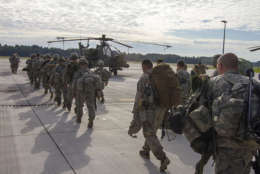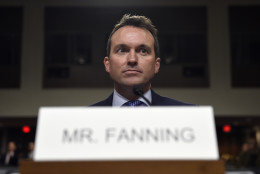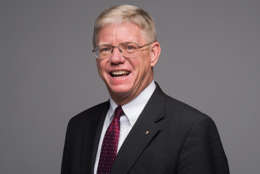Army
-
Rob Foster will join the National Credit Union Administration as its deputy CIO.
August 07, 2017 -
The U.S. Court of Appeals for Federal Claims ruled the Army went too far in trying to be fair to bidders on a recent recompete contract.
August 03, 2017 -
The Army has been through a lot in its six months without a civilian leader.
July 27, 2017 -
Post traumatic stress syndrome presents a continuous challenge to military doctors. No single treatment works for everyone or in every circumstance. Now the Army has launched a study to test a novel way of treating PTSD with an injection to the neck. Dr. Ron Hoover, senior scientist and PTSD research portfolio manager for the Army, provides details on Federal Drive with Tom Temin.
July 25, 2017 -
The Army's Office of Energy Initiatives is the service's central hub for managing the financing and planning for "utility scale" renewable and alternative energy projects. Michael McGhee, OEI's executive director, talks with Jared Serbu about some of the major projects in the pipeline, and the Army's desire to use the power they generate to make its bases energy-independent.
July 14, 2017 -
Over the past five years, the Army has been busily building renewable power facilities on its bases in order to reach an overall goal of 1 gigawatt of renewable energy by 2025. But now, the Army is putting more of an emphasis on using that energy to make its bases entirely self-sufficient from the public electric grid, so they can continue to function in the event of an outage. Michael McGhee, executive director of the Army Office of Energy Initiatives, talked with Federal News Radio’s Jared Serbu on Federal Drive with Tom Temin about the technologies the Army’s pursuing to make that a reality.
July 13, 2017 -
The Army believes the future of ground combat will be markedly more austere than what troops became used to in Iraq and Afghanistan, and is rethinking its logistics enterprise for combat formations that will need to be more self-sufficient.
July 07, 2017 -
The Army spends in the neighborhood of $20 billion a year to develop and buy weapons. But it has trouble developing sound requirements, and now it has an issue with its requirements workforce. Marie Mak, director of acquisition and sourcing management issues at the Government Accountability Office, offers insight on Federal Drive with Tom Temin.
July 06, 2017 -
The Senate Armed Services Committee's version of the 2018 National Defense Authorization Act cuts funding for several software programs the panel sees as underperforming, and implements what congressional officials say are corrective measures to DoD's IT buying habits.
July 05, 2017 -
New data from Bloomberg Government shows more than 2,600 multiple award contracts across government, which is a drop of 8 percent over the last five years.
June 19, 2017 -
A program that allows soldiers to take a break from active duty to pursue schooling or professional goals is still in its infancy. A new report says only 13 soldiers have taken advantage of the program.
June 16, 2017 -
Despite wrestling with a less than ideal budget, the Army is trying to keep energy resilient in the 21st century. Federal News Radio's Scott Maucione talks with Acting Deputy Assistant Secretary of the Army for Energy and Sustainability Jack Surash on Federal Drive with Tom Temin about the Army's energy future.
June 10, 2017 -
The former Army secretary says there's too much bickering in Congress to actually grow the military, but readiness holes need to be plugged first anyways.
June 06, 2017 -
The Army chief of staff wants a new assessment of the $6 billion WIN-T program, hopefully in time to influence the 2018 Defense authorization bill. He worries the system is too vulnerable in real-world battle conditions and is based on outdated technology.
May 29, 2017 -
The 9/11 attacks wrecked a big chunk of New York City infrastructure. Hurricane Sandy washed away parts of New Jersey and New York. For decades, waterways feeding East Coast ports were too shallow. Joseph Seebode, deputy district engineer and the chief of programs and project management at the Army Corps of Engineers, is a finalist in this year's Service to America Medals program. He tells Federal Drive with Tom Temin how he's going to fix all those problems.
May 26, 2017


